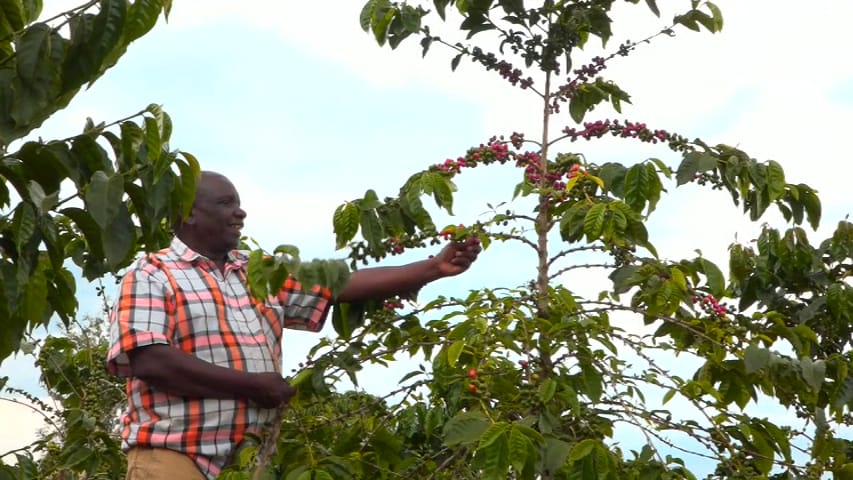
Laikipia County, long associated with livestock rearing and its dry, rugged terrain, is undergoing a transformation as farmers shift towards cultivating one of the world’s most lucrative crops — coffee.
In Tandare village, Kinamba ward, rows of thriving Batian coffee bushes stretch across Peter Kimani’s one-and-a-quarter-acre farm. Kimani began his coffee venture in 2022 and says the crop has already eclipsed his traditional staple, maize, in profitability.
“Maize has been our cash crop for many years but now it has been replaced by coffee due to the good returns,” Kimani said. “With an acre of maize crop making a net profit of Sh30,000 annually and the same piece of land planted with coffee earning Sh240,000, coffee is the best option.”
He added that his most recent harvest brought in Sh320,000, solidifying his decision to abandon maize farming.
Despite unpredictable weather and reliance on shallow rains and dams, Kimani has nurtured nearly a thousand coffee bushes. He and fellow members of the Ng’arua Coffee Farmers’ Cooperative Society process their harvest using portable machines, removing the red husk before washing and drying the beans for sale.
“Since we do not have a processing factory, it’s upon the farmers to do their pulping and drying, then we sell the produce as members of the society aimed to get good returns,” Kimani explained. At the New Kenya Planters Cooperative Union (NKPCU), parchment coffee fetches Sh330 per kilo, while dried coffee earns Sh200.
To shield farmers from predatory brokers, often from Nyeri, Kirinyaga and Nairobi, the cooperative encourages sales through its network, offering advance payments and training to members.
Laikipia Governor Joshua Irungu says the county’s coffee revolution could yield Sh10 billion within four years, lifting countless families out of poverty.
“With an acreage of land under coffee, every family take home will be a million shillings,” he said, adding that coffee bushes could also help curb seasonal conflicts between farmers and herders, as livestock cannot graze on the crop.
The Kenyan government has backed the shift with aggressive expansion plans. Cooperatives Cabinet Secretary Wycliffe Oparanya announced a three-year strategy to boost coffee acreage through seedling distribution, farmer training, and enhanced marketing.
NKPCU managing director Timothy Mirugi said Kenya currently produces 49 tonnes of coffee annually but is targeting 200,000 tonnes by 2028.
As part of that goal, KPCU plans to distribute 500,000 seedlings in Laikipia this year alone, with the county aiming to grow 10 million coffee bushes by 2027.
According to Laikipia’s agriculture department, the number of coffee farmers has surged from 398 to 1,117, with Batian and Ruiru 11 emerging as the preferred varieties. For many, coffee is no longer just a crop — it is a pathway to prosperity.



